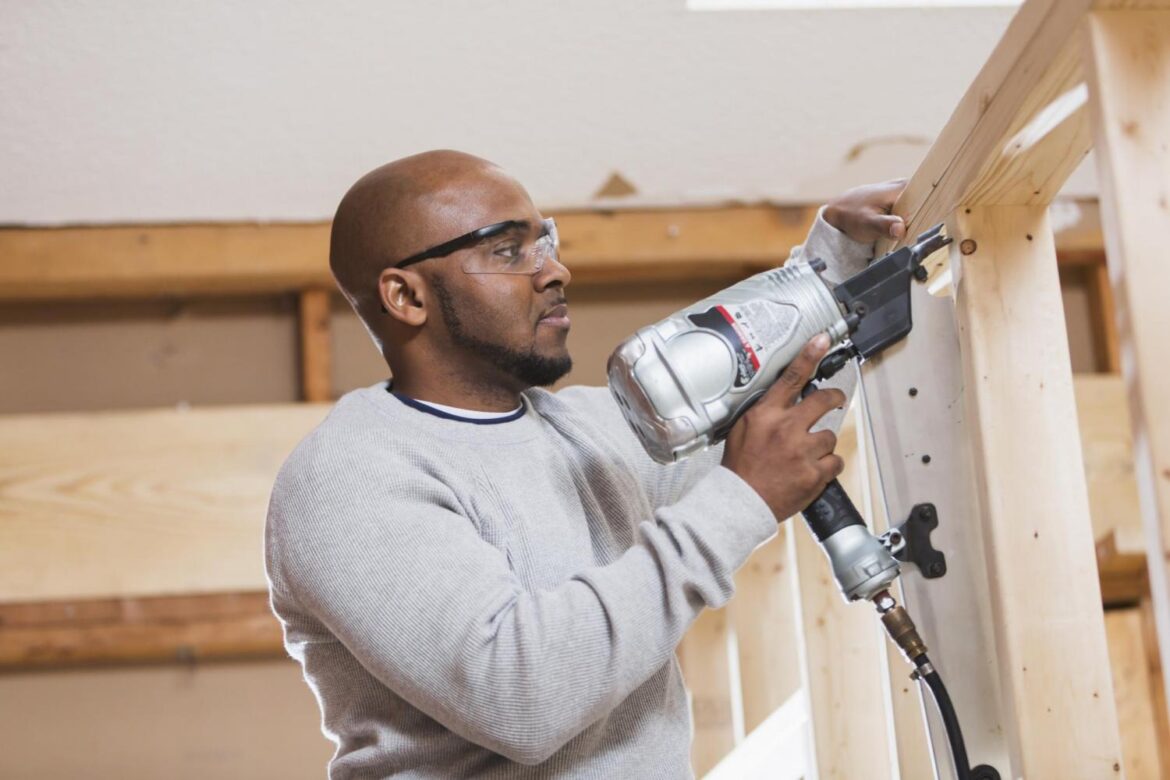The following pages have been provided by the Better Business Bureaus (BBB) of Cincinnati and Dayton for readers of Home + Design.
“Install hardwood flooring in your home for $15 in a weekend!”
“The surprising $25 hack homeowners are using to completely renovate their bathrooms!”
“This cheap, easy DIY kitchen remodel tutorial is saving people thousands!”
Have you ever clicked on a headline like that? If you’re like any of the millions of American consumers who have been inspired to DIY a major home project, you probably have. The can-do, creative spirit of DIY is what makes our society unique. We are so here for it.
But few DIY projects go off without a hitch. Not enough preparation or research, surprise construction flaws and unrealistic expectations sneak up on even the most enterprising of do-it-yourselfers.
So, do you know what to do when your DIY project goes wrong? Check the list below:
- Take five. Stop and reevaluate your project. Be realistic about your options and limitations. Whatever the obstacle, it will probably require an adjustment of your timetable, budget or supplies.
- Don’t take shortcuts. When you hit a snag, you may be tempted to skip steps or cut corners. Short-term solutions lead to long-term problems.
- Consider consultation. When you’re stuck, a local contractor may be willing to consult with you about how best to proceed.
- Get backup. It may be time to bring in a professional to finish your project. If things are critical, it’s essential that you find someone trustworthy and credible.
- Go to bbb.org. Our database has everything you need to know about businesses in your area, so you can find highly rated, well-reviewed professionals to help you finish your project. With BBB, better backup is just a click away.
Looking for a Trustworthy Business? Check Its BBB Accreditation.
At one point or another, you’ll need help choosing the right business. Whether hiring a home improvement contractor, finding the right lawyer or getting a new dentist, you need a way to find a company you can trust to meet your needs. But you’re busy and time is precious—sometimes there isn’t enough time to research a business properly or not enough information out there to set your mind at ease.
That’s where we come in.
BBB evaluates businesses that apply for accreditation using a set of standards. Those that meet our standards commit to a comprehensive set of policies, procedures and best practices.
In a nutshell, these businesses have promised to treat you right.

BBB Accredited Businesses do the following:
- Build trust. They establish and maintain a positive track record.
- Advertise honestly. They adhere to high standards of advertising and selling.
- Tell the truth. They honestly represent products and services, and clearly disclose
all terms. - Are transparent. They’re open about the nature, location and ownership of their business. They disclose all policies, guarantees and procedures that have bearing
on a customer’s decision to buy. - Honor promises. They abide by all written agreements and verbal representations.
- Are responsive. They address disputes quickly, professionally and in good faith.
- Safeguard your privacy. They protect any data collected against mishandling and fraud. They collect personal information only as needed and respect your preferences about how they use it.
- Embody integrity. They approach all dealings, transactions and commitments
with integrity.
The bottom line is that when you need a business you can trust, lean on BBB accreditation. It’s a seal that gives you confidence about your choice. Check bbb.org to find a company’s status and reviews and look for the BBB logo on its website and advertisements. n
Contracts 101
Do you know all there is to know about contracts?
Did you know that a contract, once it is signed, can’t be changed or broken unless both parties agree? But, the Federal Trade Commission’s Cooling-Off Rule gives you three days to cancel purchases of $25 or more for any reason.
Before you hire a business to perform a service or repair, obtain a loan or make a large purchase, you may need to sign a contract. Here’s what it should include:
- Company’s name and address
- Person’s name and contact information
- Product price, type and model number
- Quality and condition of materials used
- Service obligations and delivery/completion time
- Project cost and payment schedule
- Cancellation and return policies
- Warranty and guarantee information
Always, always, always read and clearly understand a contract before you sign it. Make revisions, additions or deletions as needed. Contracts are designed to protect you and the business, so put them to work for you!
Before you sign a contract:
- Be wary of vaguely worded provisions, exclusions or limitations.
- Request confusing statements be removed or clarified.
- Make sure oral promises are included.
- Consider having your contract reviewed by an attorney.
- Resist any pressure to sign before you feel comfortable.
- Never sign a blank contract.
- Keep a copy of the signed contract.
Protecting yourself is more than just doing business with a trustworthy company—it means making sure you’ve reached a solid contractual agreement. With BBB’s help, you can feel confident when you sign your name to any dotted line.




